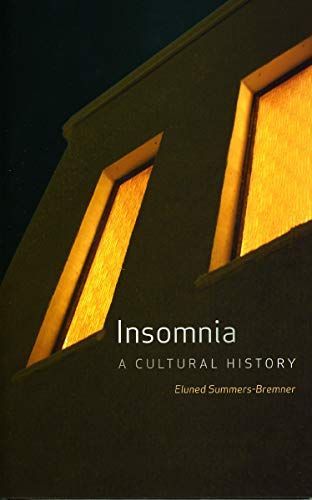
Insomnia A Cultural History
This cultural, historical, and scientific exploration of sleeplessness by Eluned Summers-Bremner begins with the literature of ancient times, and finds its sufferers in prominent texts such as the Iliad, the Odyssey, the Mesopotamian epic Gilgamesh, and the Bible. Moving to Romantic and Gothic literature, she shows how sleeplessness continued to play a large role as the advent of street lighting in the nineteenth century inspired the fantastical blurring of daytime reality and night visions and authors connected insomnia to the ephemeral worlds of nightmares and the sublime. Meanwhile, throughout the ages insomnia has been variously categorized by the medical community as a manifestation of a deeper psychological or physical malady. Today’s medical solutions tend to involve prescription drugs—but, as Insomnia reveals, important questions linger about the role of the pharmaceutical industry and the effectiveness of such treatments. “Summers-Bremner’s account of literary usages of insomnia, from Gilgamesh to Garcia Márquez, is a rich one, sufficient to make the case that insomnia is a recurrent theme in Western culture.”––Wall Street Journal “A whimsical tour of the history of how different cultures have viewed not only insomnia but also the night itself, sleep, dreams, darkness, and activities that occur in the dark.”—New England Journal of Medicine “Summers-Bremner’s excellent account of insomnia shows that the consideration of our waking moments is indicative of the changing ways we think about life.”—Financial Times Magazine